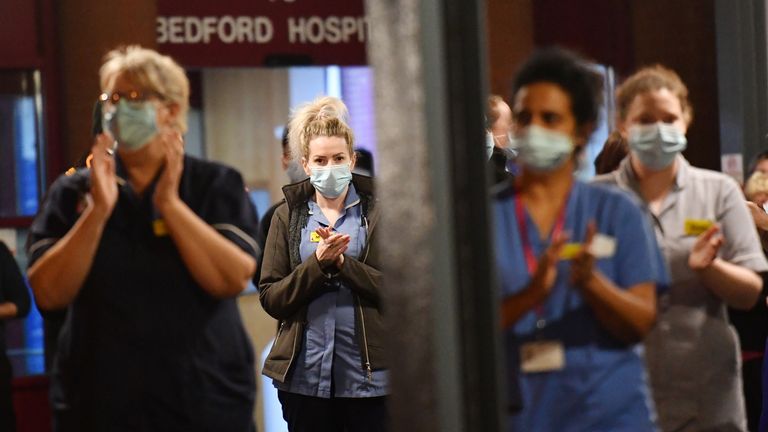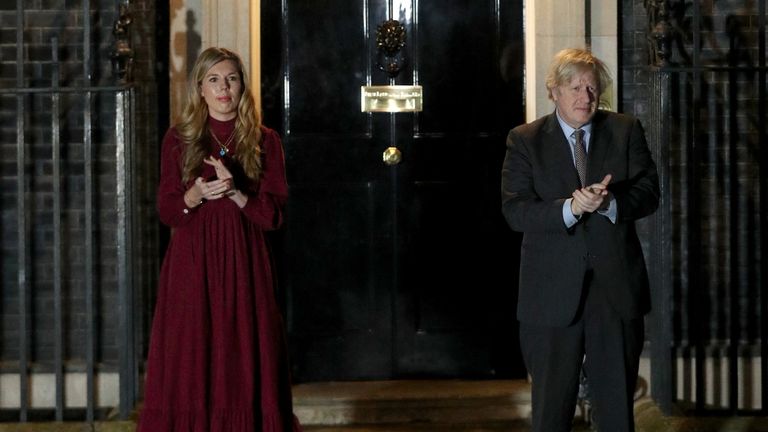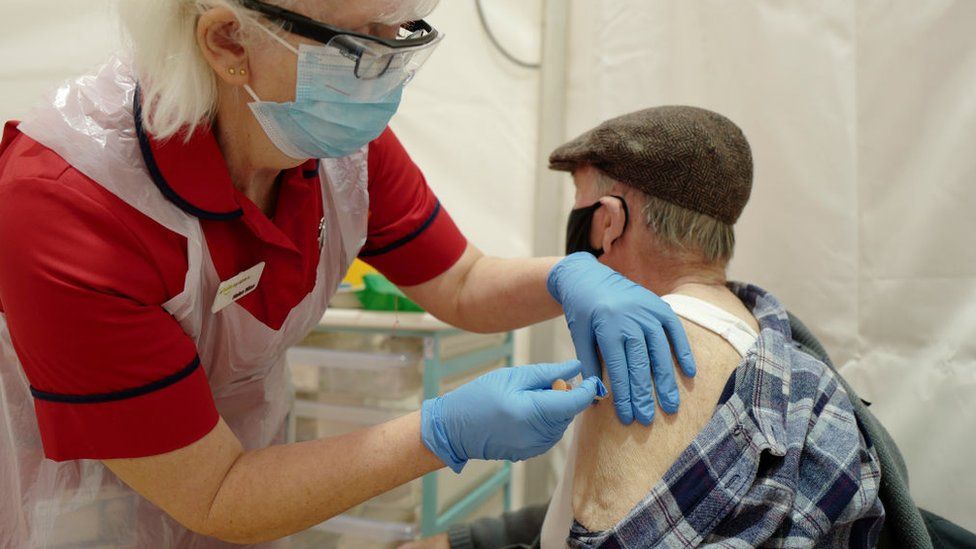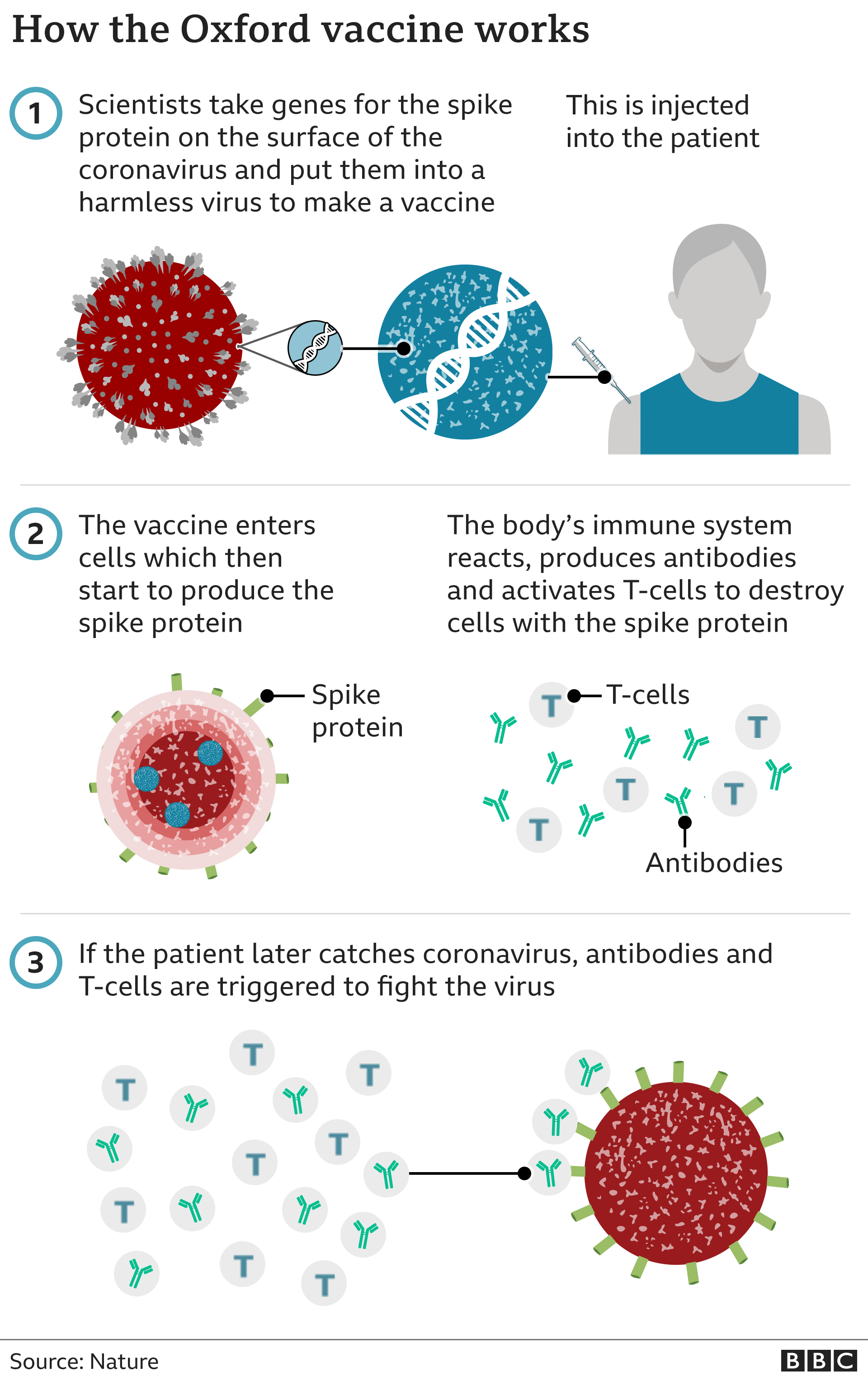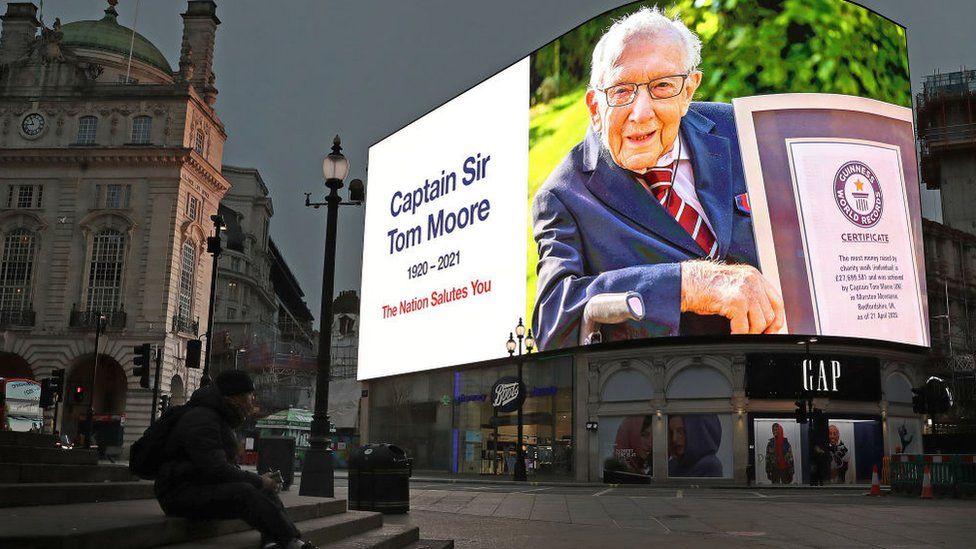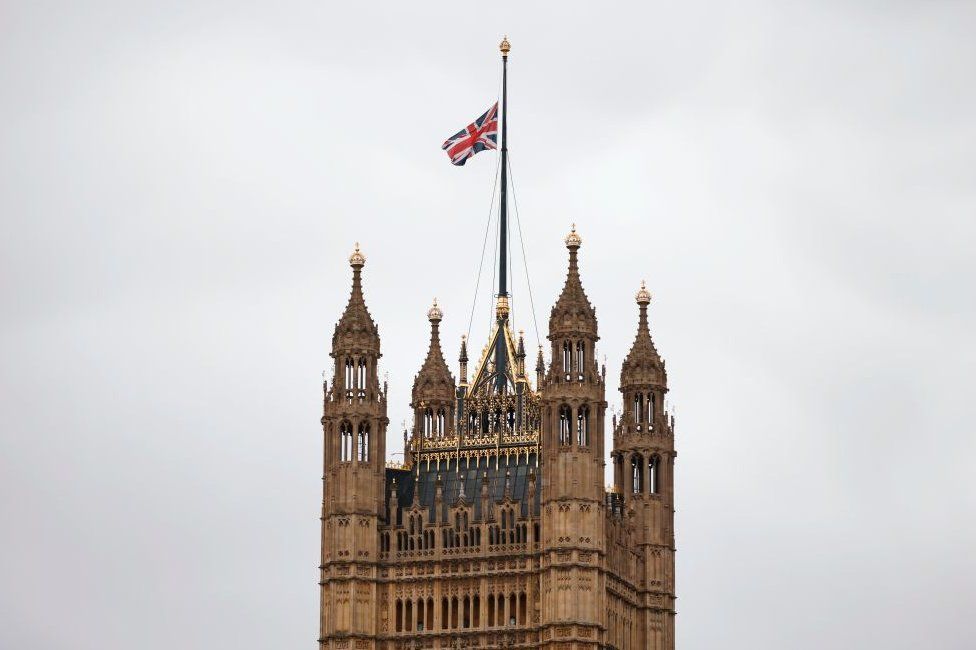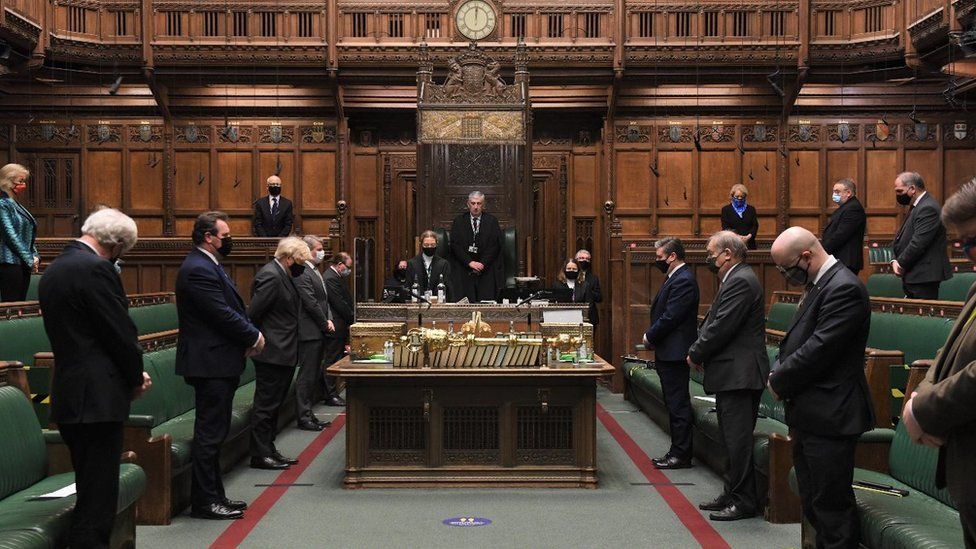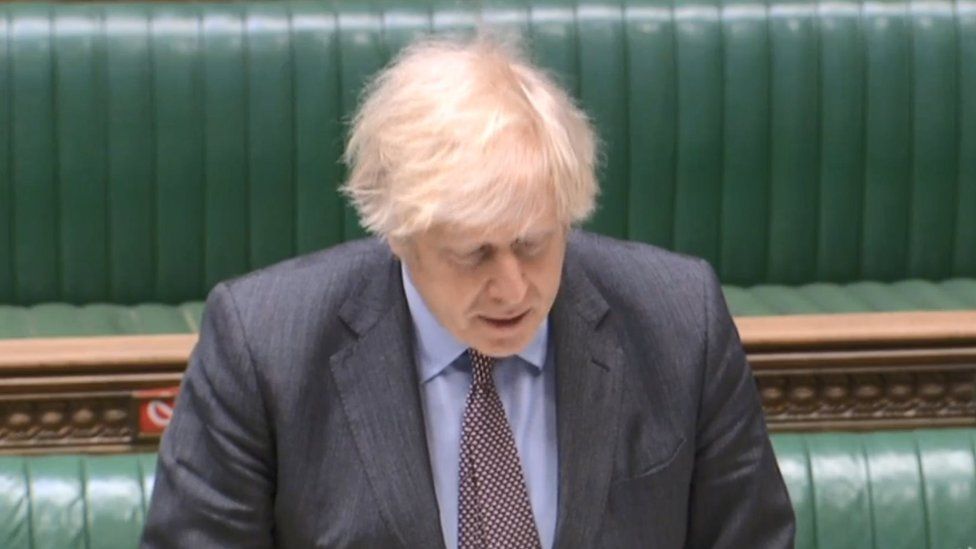The UK is "past the peak" of the current wave of the pandemic but infection rates are still high, England's chief medical officer says.
Prof Chris Whitty said the number of cases, hospitalisations and deaths were on a "downward slope" but that did not mean there would not be another peak.
Boris Johnson praised the "colossal" effort to vaccinate 10 million people, including 90% of those aged over 75.
But he said the NHS was still under "huge pressure".
Speaking at a Downing Street briefing, Prof Whitty said while the number of people in hospital with Covid-19 had reduced "quite noticeably", it was still above that of the first peak in April 2020.
"So this is still a very major problem, but it is one that is heading the right way," he said.
Prof Whitty said infection rates were "coming down but they are still incredibly high".
If the rate was to increase again "from the very high levels we are at the moment the NHS will get back into trouble extraordinarily fast", he added.

- LOOK-UP TOOL: How many cases in your area?
- SYMPTOMS: What are they and how to guard against them?
- YOUR QUESTIONS: We answer your queries
- GLOBAL SPREAD: How many worldwide cases are there?
- VACCINES: Those that work - and others on the way

On Wednesday the UK recorded a further 1,322 deaths reported within 28 days of a positive test for coronavirus, bringing the total number of people who have died by this measure to 109,335, while a further 19,202 new cases were recorded.
Mr Johnson told the briefing: "Though today there are some signs of hope - the numbers of Covid patients in hospital are beginning to fall for the first time since the onset of this new wave - the level of infection is still alarmingly high."
He said that there were about 32,000 Covid patients in hospital.
The prime minister said he hoped schools in England would be able to begin reopening from 8 March, as evidence showed the coronavirus vaccines reduced "death and serious illness" from the main strains of the disease.
He said the government would outline a "route map" out of lockdown on 22 February and that the country would be in "a very different situation" to last summer, when disease levels had been reduced but there was no vaccine.
Prof Whitty said every adult being offered a first dose of a vaccine by May and a second by August was "at the very optimistic end" due to supply constraints.


There is a lot to be hopeful for. The vaccine rollout is going well. Infection levels and the numbers in hospital are coming down - and there are early signs the same is happening with deaths.
Progress should continue in the coming weeks as the impact of vaccination starts to kick in - deaths could then start falling rapidly.
But the great unlocking will have to be slow.
Why? While the numbers in hospital are coming down, it's from an incredibly high base. There are still 50% more patients in hospital now than there were during the first peak.
The pressures are going to be severe for some time.
What is more, come mid-February when all the over 70s will have been offered the jab, there will still be significant numbers at risk of hospitalisation if they are infected.
Most deaths are in the over-70s, but close to half of hospital cases are in the under-70s. A delicate balance will have to be tread until the over 50s are protected.

Earlier, Health Secretary Matt Hancock hailed the results of a study which showed the Oxford-AstraZeneca vaccine might reduce the spread of coronavirus as "absolutely superb".
The researchers behind the jab have also said that a vaccine to tackle variants of the virus could be ready to deploy by the autumn should they be needed.
A "small number" of cases of the coronavirus variant first identified in South Africa have been found in Birmingham as well as three cases without any travel history in Wales. It comes after door-to-door testing has been launched to detect the mutation, which is thought to be more infectious but not necessarily more deadly.
The prime minister also led a clap for fundraiser Captain Sir Tom Moore.
The 100-year-old, who raised almost £33m for NHS charities by walking laps of his garden, died with coronavirus in Bedford Hospital on Tuesday.

- THE ASK MARTIN LEWIS PODCAST: Why have workers missed out on Government financial help during the pandemic?
- GROUNDED WITH LOUIS THEROUX: Stuck at home, Louis is using lockdown to track down high-profile people he's always longed to chat to...

https://news.google.com/__i/rss/rd/articles/CBMiJmh0dHBzOi8vd3d3LmJiYy5jby51ay9uZXdzL3VrLTU1OTI0MTQ50gEqaHR0cHM6Ly93d3cuYmJjLmNvLnVrL25ld3MvYW1wL3VrLTU1OTI0MTQ5?oc=5
2021-02-03 19:30:00Z
52781349174148
